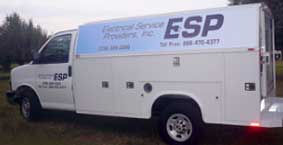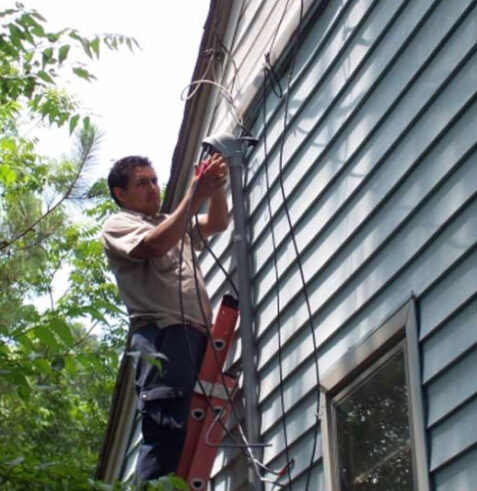What you need to know about aluminum wiring
Many people don’t think about the constant electrical currents that run through their homes. Modern life is possible because of the wiring in your home, and everyday life was different before wiring. Nearly all modern homes are wired with copper, but aluminum wiring as standard from 1965 to the mid-70s. People are now being warned not to buy aluminum wiring and to rewire their homes using copper if it was used. Aluminum wiring is a fire hazard. Don’t worry; Electrical Service Providers will inspect your electrical system to rewire your Burlington and Chapel Hill, NC house if necessary. This will ensure that your family is safe.
Why was aluminum wire used?
Between 1965 and 1972, aluminum wiring was common in many homes due to skyrocketing copper prices. Burlington and Chapel Hill, NC were not spared from rising costs and switched to aluminum like everyone else. There is a possibility that your home could have aluminum wiring. At the time, aluminum seemed like an attractive alternative to copper because it was inexpensive, plentiful, and had similar conductivity to copper. Although it was not immediately apparent that aluminum wire was inferior to copper wire at the time, the issues have become more evident as wiring ages.
Is Aluminum Wiring Dangerous!
The dangers of aluminum wiring in your home include overheating, loose connections, electrical damage, and fire. There are many reasons why aluminum wiring can become hot and cause problems.
How to Find Out if Your Home Has Aluminum Wiring
If you are unsure if your house has copper wiring and was built between 1965-1972, you can check the wiring in the electrical panel or any area with visible wiring like the attic. Once you have located the wires, you can inspect them to determine what kind of wire they are. You should label aluminum wiring with one of the following.
1) AL
2) ALUM
3) ALUMINUM
Electrical Service Providers can help you determine if your house is wired with aluminum wiring if there are no labels. We will gladly come to your home in Burlington and Chapel Hill, NC, or the surrounding area to perform an electrical inspection.
Less Ductility
Aluminum is not as malleable as copper, and this means it can’t withstand being bent, stretched, and manipulated in similar ways. Over time, aluminum wiring begins to deteriorate internally, and this causes the wiring to resist more electric current, decreasing its efficiency and causing excess heat to build up.
Aluminum is also malleable and highly sensitive, and it can be bent easily without any resistance. This is not as easy as it sounds. Because aluminum wiring is malleable, it should only be used with screws.
Oxidation
While all wires eventually oxidize, the aluminum oxide oxidation, which is what causes aluminum wiring to oxidize, is a poor conductor. The wires will become less efficient and more susceptible to overheating as they accumulate more oxidation. Copper wiring that has oxidized can still conduct electricity.
Greater Thermal Expansion
When exposed to heat, aluminum wiring expands faster than copper wiring, and the wiring’s constant expansion and contraction cause it to become loose and brittle over time. Loss of connections can lead to fire, sparking, overheating, and even fire.
Stronger Vibrations
A copper wire vibrates slightly when an electrical current flows through it. However, electrical current flows through a copper wire and vibrates somewhat. Over time, however, the vibrations can be stronger and cause connections to become loose.




